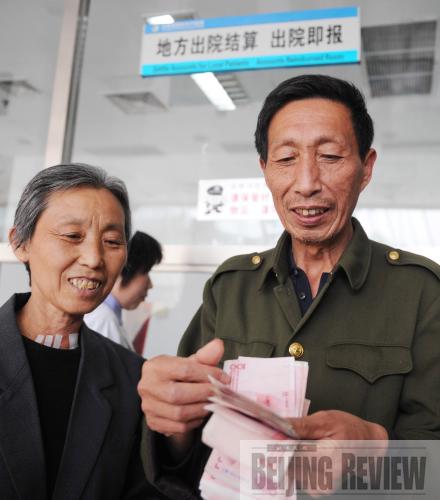|
 |
|
HEALTH BENEFITS: Farmers begin reaping the rewards of a reformed medical service in the countryside (YANG SHIYAO) |
Wage Gap Poser
According to sources with the Ministry of Labor and Social Security, in 2006 the average wage of workers in industries such as electricity, telecommunications, banking, insurance and tobacco were two to three times that of average workers in other industries. Taking into account differences in welfare benefits and other extra income, the actual gap is more likely five to 10 times greater.
Extremely high incomes in monopoly industries have become a major contributor to the growing wealth gap in China.
Simply introducing wage caps in monopoly industries cannot solve the problem. The fundamental solution lies in breaking the backs of monopoly industries. For this purpose, the government must establish anti-monopoly as a basic state policy and, on this basis, intensify efforts to dismantle various interest groups with strong vested interests and allow the whole society to share state wealth.
The Beijing News
Costs of Free Medicare
A new medical bill reimbursement program, launched on March 1 by the government of Shenmu County in northwest China's Shaanxi Province, is facing an embarrassing situation. For the last two months, hospitals in the county have been so crowded that a vacant bed is a rarity, even for those in need of emergency hospitalization. Some patients refused to leave even after doctors assured them they had fully recovered. Some critics therefore accuse the patients of abusing limited medical resources and blame it on their "low moral standards."
In reality the program is not totally free. The program stipulates that all local residents, both rural and urban, can have their medical expenses reimbursed if they spend more than 200 yuan ($29.28) in township clinics, 400 yuan ($58.57) in county-level hospitals and 3,000 yuan ($439.24) in hospitals outside the county.
| 